Filter by
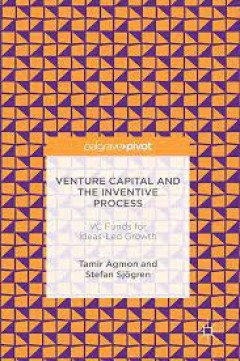
Venture Capital and the Inventive Process VC Funds for Ideas-Led Growth
The inventive process is the most important driver of economic growth. Venture capital (VC) funds have contributed a small, but critical, part to the inventive process. VC funds boost the inventive process by selecting a small number of radical ideas out a large flow of ideas and invest in their testing, development and commercialization. They bring together capital from general savings, manage…
- Edition
- -
- ISBN/ISSN
- 978-1-137-53660-0
- Collation
- XIV, 123
- Series Title
- -
- Call Number
- -
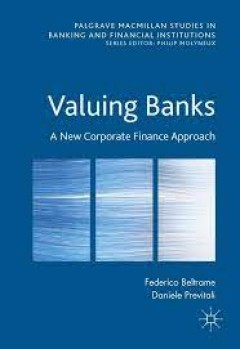
Valuing Banks A New Corporate Finance Approach
This book aims to overcome the limitations the variations in bank-specifics impose by providing a bank-specific valuation theoretical framework and a new asset-side model. The book includes also a constructive comparison of equity and asset side methods. The authors present a novel framework entitled, the “Asset Mark-down Model”. This method incorporates an Adjusted Present Value model, whi…
- Edition
- -
- ISBN/ISSN
- 978-1-137-56142-8
- Collation
- 19 b/w illustrations
- Series Title
- -
- Call Number
- -

Affine Diffusions and Related Processes: Simulation, Theory and Applications
This book gives an overview of affine diffusions, from Ornstein-Uhlenbeck processes to Wishart processes and it considers some related diffusions such as Wright-Fisher processes. It focuses on different simulation schemes for these processes, especially second-order schemes for the weak error. It also presents some models, mostly in the field of finance, where these methods are relevant and pro…
- Edition
- Ed. 1
- ISBN/ISSN
- 978-3-319-05221-2
- Collation
- XIII, 252
- Series Title
- Bocconi & Springer Series
- Call Number
- 330 ALF a
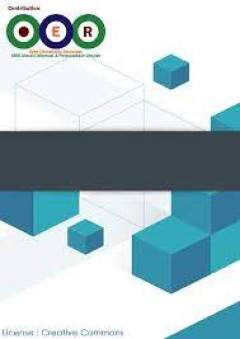
Finance, Banking, and Money
The financial crisis of 2007-8 has already revolutionized institutions, markets, and regulation. Wright's Money and Banking V 2.0 captures those revolutionary changes and packages them in a way that engages undergraduates enrolled in Money and Banking and Financial Institutions and Markets courses. Minimal mathematics, accessible language, and a student-oriented tone ease readers into comple…
- Edition
- -
- ISBN/ISSN
- -
- Collation
- -
- Series Title
- -
- Call Number
- 330 WRI f

Dynamics of cross-border flow-performance relationships : the case of Europea…
In order to measure the dynamics of flow-performance relationships for a multi-domicile sample, Simon Weiler applies existing flow-performance research methods to a broad set of European equity (UCITS) funds and proves that major findings (performance-chasing behaviour and a convex flow-performance relationship) also hold true in a cross-border market environment. Contents Status-Quo of flow-pe…
- Edition
- -
- ISBN/ISSN
- -
- Collation
- -
- Series Title
- -
- Call Number
- 332
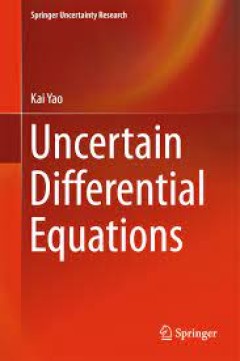
Uncertain Differential Equations
This book introduces readers to the basic concepts of and latest findings in the area of differential equations with uncertain factors. It covers the analytic method and numerical method for solving uncertain differential equations, as well as their applications in the field of finance. Furthermore, the book provides a number of new potential research directions for uncertain differential equat…
- Edition
- -
- ISBN/ISSN
- 978-3-662-52729-0
- Collation
- XIII, 158
- Series Title
- -
- Call Number
- -
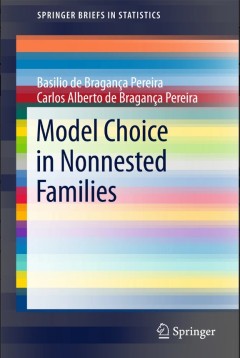
Model Choice in Nonnested Families
This book discusses the problem of model choice when the statistical models are separate, also called nonnested. Chapter 1 provides an introduction, motivating examples and a general overview of the problem. Chapter 2 presents the classical or frequentist approach to the problem as well as several alternative procedures and their properties. Chapter 3 explores the Bayesian approach, the limitat…
- Edition
- 1
- ISBN/ISSN
- 978-3-662-53735-0
- Collation
- X, 96; 3 b/w illustrations, 2 illustrations in colour
- Series Title
- SpringerBriefs in Statistics
- Call Number
- -
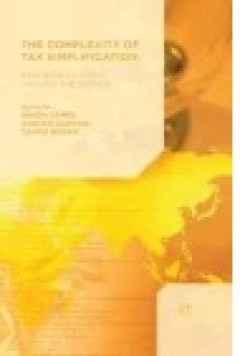
The Complexity of Tax Simplification
Simplicity in taxation has considerable potential advantages. However, attempts to simplify tax systems are only likely to be successful and enduring if they take account of the reasons why taxation is complex. There are strong pressures on tax systems to accommodate a range of important factors, as well as complex and changing national and international environments within which modern tax sys…
- Edition
- -
- ISBN/ISSN
- 978-1-137-47869-6
- Collation
- XIV, 273
- Series Title
- -
- Call Number
- -
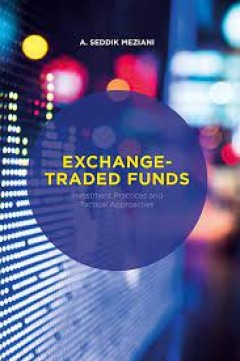
Exchange-Traded Funds Investment Practices and Tactical Approaches
With Exchange Traded Fund (ETF) sponsors constantly making new types of ETFs available, there is now a variety of ETFs that provide investors with an opportunity to develop diversified investment portfolios. Their sophistication has also grown to include a breed of ETFs that do not passively track the performance of an underlying index. With this assortment of newer ETFs, and more on the way, m…
- Edition
- -
- ISBN/ISSN
- 978-1-137-39094-3
- Collation
- 3 b/w illustrations, 20 illustrations in colour
- Series Title
- -
- Call Number
- -
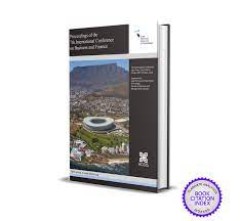
Proceedings of the 7th International Conference on Business and Finance
Theme: ‘Creating futures: Sustainable economies?’ Purpose: To share continuous and collaborative research outputs that review existing strategies and to propose mechanisms for the likely achievement of a sustainable economy that is unique but inclusive to different entities in the world. Target audience: This year’s 7th International Conference on Business and Finance (ICBF) continues its…
- Edition
- -
- ISBN/ISSN
- -
- Collation
- -
- Series Title
- -
- Call Number
- 650 PRO
 Computer Science, Information & General Works
Computer Science, Information & General Works  Philosophy & Psychology
Philosophy & Psychology  Religion
Religion  Social Sciences
Social Sciences  Language
Language  Pure Science
Pure Science  Applied Sciences
Applied Sciences  Art & Recreation
Art & Recreation  Literature
Literature  History & Geography
History & Geography